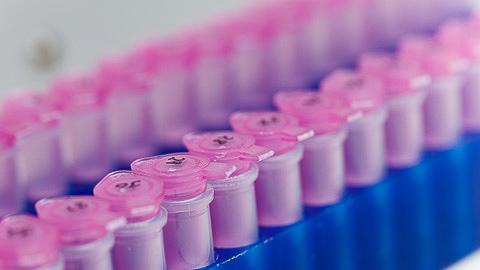Finnish research group discovers a new immune system regulator

These are test tubes. Photo: Hanna Oksanen, University of Turku
Regulatory T cells are critical controllers of the immune response. The majority of T cells boost the immune response enhancing the ability to destroy cancer cells, viruses and bacteria.
In contrast, regulatory T cells can sometimes suppress the immune system's ability to attack cancer cells, allowing cancer to grow and spread.
In these instances, inhibiting or braking the regulatory T cell activity would be needed.
-We discovered that a protein called 'Hypermethylated In Cancer 1', or HIC1, serves as the key regulator of regulatory T cells controlling the expression of a large set of genes contributing to T cell function, says Academy Professor Riitta Lahesmaa.
– In addition, with genome-wide methods we show that HIC1 binds to sites in the nucleus that often contain genetic variations associated with immune-mediated diseases. This gives us completely new insights into molecular mechanisms that regulate T cell function and immune response in general, continues Lahesmaa.
###
The study was published in the Cell Reports journal on 20 February 2018.
Transcriptional Repressor HIC1 Contributes to Suppressive Function of Human Induced Regulatory T Cells, available online: http://www.
Media Contact
All latest news from the category: Health and Medicine
This subject area encompasses research and studies in the field of human medicine.
Among the wide-ranging list of topics covered here are anesthesiology, anatomy, surgery, human genetics, hygiene and environmental medicine, internal medicine, neurology, pharmacology, physiology, urology and dental medicine.
Newest articles

High-energy-density aqueous battery based on halogen multi-electron transfer
Traditional non-aqueous lithium-ion batteries have a high energy density, but their safety is compromised due to the flammable organic electrolytes they utilize. Aqueous batteries use water as the solvent for…

First-ever combined heart pump and pig kidney transplant
…gives new hope to patient with terminal illness. Surgeons at NYU Langone Health performed the first-ever combined mechanical heart pump and gene-edited pig kidney transplant surgery in a 54-year-old woman…

Biophysics: Testing how well biomarkers work
LMU researchers have developed a method to determine how reliably target proteins can be labeled using super-resolution fluorescence microscopy. Modern microscopy techniques make it possible to examine the inner workings…





















